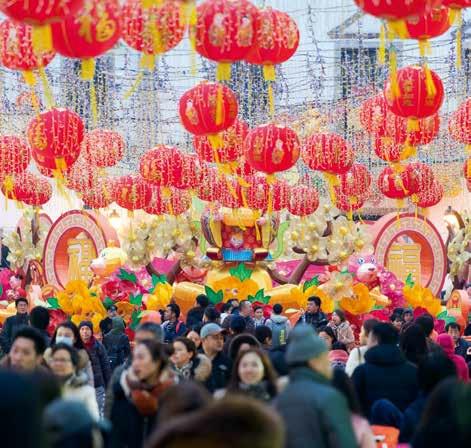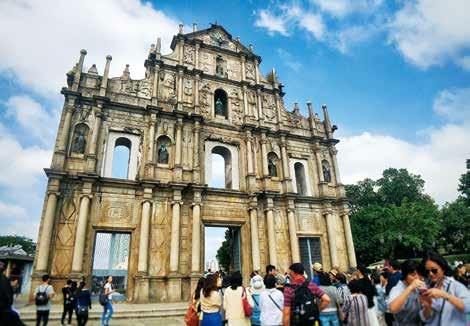Blooming Lotus Flowerr
2020-02-10byYinXingg
by Yin Xingg
December 20, 2019 marked the 20th anniversary of Macaos return to the motherland.
During the approximately 440 years from the invasion of the Portuguese in 1553 to its return to the motherland in 1999, Macao underwent various ups and downs. Today, it is enjoying a prime time, with booming tourism, rapid economic development, good public security and a flourishing education cause. Its society is full of vigor, seeing a promising future.
On March 31, 1993, the National Peoples Congress (NPC), Chinas top legislature, approved the Basic Law of the Macao Special Administration Region (SAR), which was enacted after extensive consultations and fully considering Macao peoples opinions. The great concept of “one country, two systems” was finalized in the form of law. Then, Macao set out to make various preparations and promote relevant work in the transition period. Macao compatriots carried forward the fine tradition of loving the motherland and loving Macao, and worked hard together to maintain social stability and promote economic development. People from all sectors in Macao had greater confidence in its future.
When the bell celebrating Macaos return rang out at zero hour on December 20, 1999, the bright Five-Star Red Flag (Chinas national flag) rose slowly over the regained land, and the Macao SAR Flag with five stars, a lotus flower, a bridge and sea water fluttered in the wind there for the first time.
Over the past 20 years since Macaos return, under the strong leadership of the central government and with the joint efforts of the government and people of the SAR, Macao has maintained a strong momentum of development, enjoying steady economic growth and social harmony and stability. Its citizens live and work in peace and contentment. It has embarked on a promising path of mutual complementarity and common development with other parts of China. The implementation of the “one country, two systems” policy in Macao has proven a universally acknowledged success.
Macaos economic growth rate is one of the fastest in the world, and its per-capita GDP is also one of the highest. Macao residents have a high index of happiness in regard to their lives. Since 2007, Macao has implemented a 15-year free education system from kindergarten to senior high school. Its free medical care has been rated by the World Health Organization as a “Model in the Pacific Region.” In the practice of “one country, two systems,” Macao holds an important position with unique features and many highlights, regarded as a“model” for use elsewhere.
At a gathering in celebration of the 20th anniversary of Macaos return to the motherland, Chinese President Xi Jinping, also general secretary of the Communist Party of China (CPC) Central Committee and chairman of the Central Military Commission, said that over the past 20 years Macao has achieved the best ever development in history.
The president attributed the achievement to the concerted effort made by the Macao SAR government together with people from all walks of life, the support of the central government and the mainland, as well as the leadership of Ho Hau-wah and Chui Sai-on, former chief executives of the SAR.
In the new era, Macao has ushered in a range of important opportunities for development. Construction of the GuangdongHong Kong-Macao Greater Bay Area, the Pan-Pearl River Delta regional cooperation, the Belt and Road Initiative, and the Sino-Portuguese economic and trade cooperation platform combine to create a grand blueprint for Macaos further development.
An old saying goes, “the boat moves downstream through the rapids, and green mountains flanking the river recede.” With the full support of the central government and the joint efforts of the local government and people from various sectors of Macao, the globeflower rooted in the rich soil of the motherland is in full bloom alongside the South China Sea.
(China Pictorial Press also contributed to this article.)